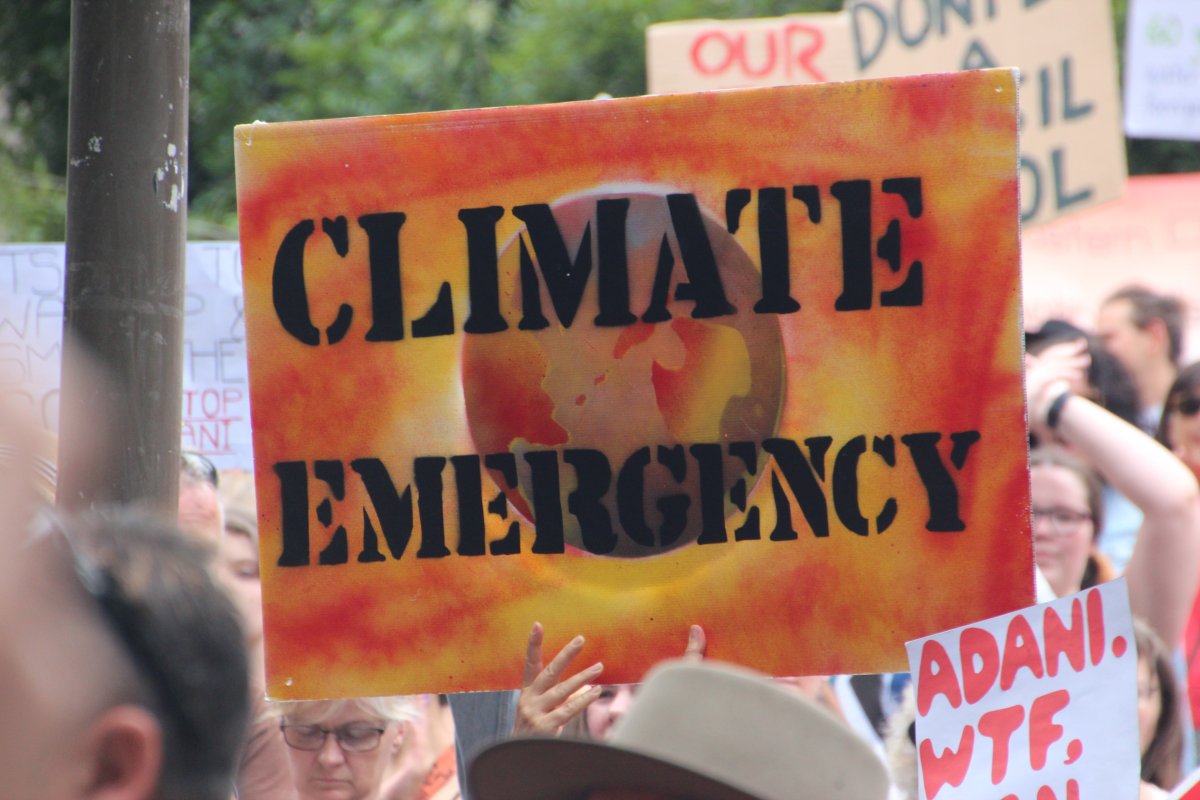August 19, 2019

Often slipping by with too little notice, communities throughout the world, including here in California, are declaring climate emergencies. They recognize that waiting for national governments to take the lead isn't sufficient. And coasting along with "someday, not now" nonchalance no longer cuts it. We've reached the point where "climate change" is not an accurate description of our situation and only obscures the fact that all life on this planet is already in an emergency situation.
Thankfully, we still have time to mobilize and accelerate local and regional support for comprehensive, immediate, and sustained action to help limit the worst impacts of a global temperature increase of 1.5°C (2.7°F) or more. That is what's driving cities across the world to declare climate emergencies, including San Francisco, Richmond, Oakland, Santa Cruz, Davis, Chico, and several others in Northern California. Los Angeles has even created a "Climate Emergency Mobilization Department" to coordinate climate action across the city.
While getting your city to declare a climate emergency is an important step, your help is needed to turn such declarations into action. Here’s what you can do:
- Share your sense of urgency with others, especially your elected officials. Instead of accepting the notion that it will take decades to make a significant impact on reducing greenhouse gases, urge city officials to look at how to mobilize departments, staff, resources, programs, regulatory legislation, incentives, and constituent/community participation to implement solutions beginning right now…this year!
- Ask elected officials to immediately review climate action plans, zeroing in on high impact actions. Buildings and transportation are the top producers of greenhouse gases in California, offering the highest payback for investment in mitigation.
- Look at the actions other cities are undertaking as possible models to replicate locally. Great ideas are sprouting throughout California, in other states, and around the world. For instance, in 2017 San Francisco became the first U.S. city to mandate solar and living roofs on most new construction. Buffalo, New York was the first major U.S. city to eliminate a minimum number of parking spaces for new residential and commercial developments citywide. And Copenhagen, Denmark is aiming to be the first major city to achieve net-zero greenhouse gas emissions and carbon neutrality by 2025.
- Work across political boundaries with your neighbors, other cities, and regional agencies to move more quickly to address the climate crisis. For example, environmental groups, including the Sierra Club's SF Bay Chapter, are joining together to organize a Bay Area Climate Emergency Mobilization Summit. It will bring together municipalities and regulatory bodies across the nine Bay Area counties to advocate for specific policies and explicit commitments to transition as quickly as possible from fossil fuels. You can do that in your area.
- Ask your city council member or elected representative what they are doing to respond to our climate emergency. If your city has passed a declaration, now's the time to get involved in its implementation. If your city hasn't done so, then it's time to meet with your councilperson to begin the process. The Sierra Club California Energy-Climate Committee has put together a one-stop source of information. Here you can find additional background on the climate emergency, sample resolutions, and a downloadable spreadsheet full of best practices for reducing greenhouse gases. Which ones could you take to your city government?
- Send an email to add actions from your city and county to the spreadsheet.
- Send an email to get on the listserve of the state Energy-Climate Committee to keep informed on this issue.
- Attend the California Conservation Committee Statewide Videoconference meeting Sunday, Sept. 8, 2019. (Climate Emergency is on the agenda from 1 – 2:30 pm)
- Volunteer for any of the many activities to move your local government from “business as usual” to a true sense of emergency.
